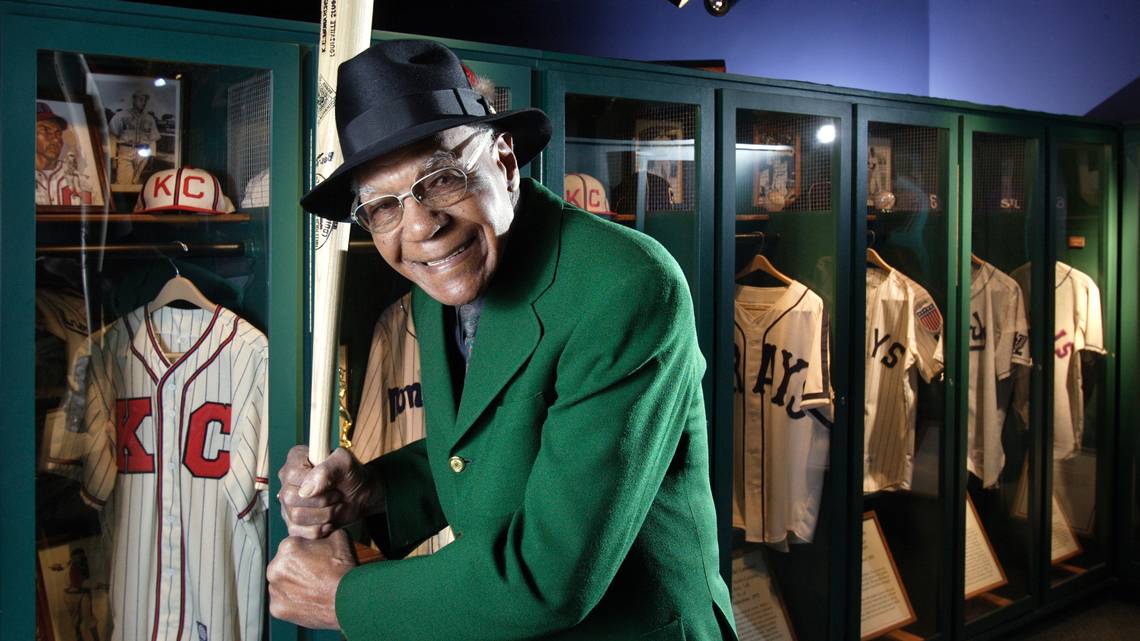Buck O’Neil – Kansas City Legend, Racial Equality Trailblazer
His life began with humble beginnings in Carrabelle, Florida, but his legacy lives on in Kansas City – his second home.
The story of the history of baseball repeatedly intersects with the life of John Jordan "Buck" O'Neil.
Due to segregation in schools at the time, O’Neil was unable to attend the new local high school that was built. But, that would not make him bitter or resentful. He enrolled at Edwards Watters College – a historically black college that would also go on to become an NAIA member.
After six seasons, his talents could not be contained by college baseball any longer. His legendary professional baseball career in 1934 and then he was moved to the Kansas City Monarchs of the Negro American League in 1938.
On the field, his talents were easily seen. He had a career batting average of .288 including four .300-plus batting seasons. O'Neil played in three Negro League East-West All-Star Games and also had two Negro World Series appearances in his career. After heading to World War II as an enlisted member of the U.S. Navy in 1944-45, he returned to Kansas City once again.
In 1948, O'Neil shifted his focus away from playing. He was named the manager of the Monarch, which he led with grace and class for eight seasons, including two Negro League titles in 1953 and 1955. Following that season, he became a scout for the Chicago Cubs and is credited with signing Hall of Famer Lou Brock.
Continuing to break down barriers, he made Major League Baseball history in 1962 as the first black coach. In 1988, O'Neil returned to Kansas City as a scout for the Royals and he would further envelop himself into the fabric of society in the region.
After ending his involvement with baseball in a team capacity, the legend of Buck really begins to shine. The guiding force was his desire to see the Negro Leagues honored and not forgotten. As a member of the Baseball Hall of Fame Veterans Committee, he saw the induction of six Negro League players.
But, he continued going further in his pursuit of saving history. O'Neil helped find and establish the Negro Leagues Baseball Museum in Kansas City, serving as honorary board chairman and ambassador until his passing in 2006 at the age of 94.
Even though Buck O’Neil’s life ended, his memory and spirit lives on. He received numerous honors after his death including the Presidential Medal of Freedom by President George W. Bush just months after his passing.
Major League Baseball awarded O’Neil the first Beacon of Life Award in 2007 and then later that year a Lifetime Achievement Award was named in his honor. However, many would say his greatest achievement was when he was posthumously elected to the 2022 class of the National Baseball Hall of Fame from Early Era Committee.
The spirit of Buck lives on in many places throughout the Kansas City area. Not only is he a large figure at the Negro Leagues Baseball Museum, which was establish just down the street from where the Negro League started, but in 2016 the Broadway Bridge was officially renamed the John Jordan “Buck” O’Neill Memorial Bridge.
The Kansas City Royals honor him in two specific ways. In addition to a bronze statue in the teams’ museum, the Royals place a fan in the "Buck O'Neil Legacy Seat" at Kauffman Stadium at each Royals home game.
But, for all the honors and accolades that were bestowed upon Buck, his mission in life was for the Negro Leagues to be remembered. He preached this every day of his outstanding life and now his legacy of integrity and dignity carries forth.
His motto for all was, "You could get further in this life with love than you could with hate."




